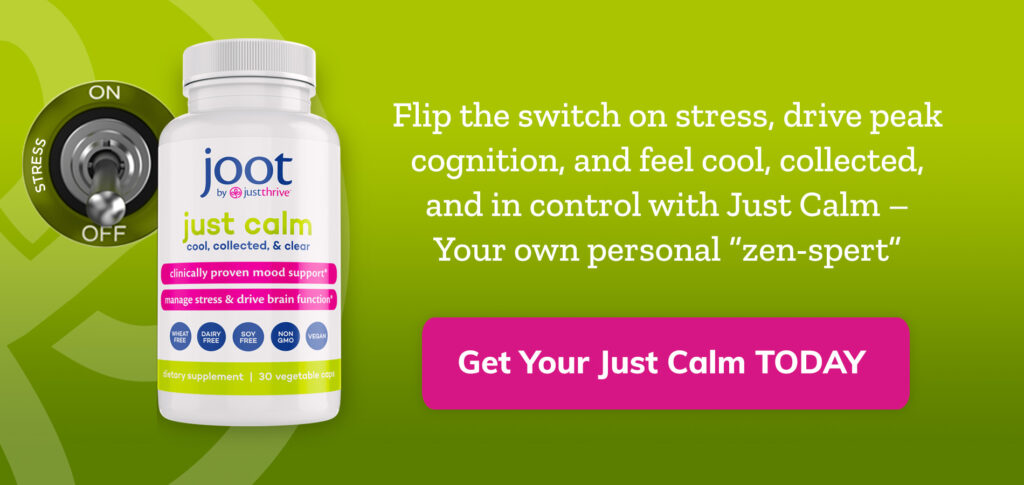Table of Contents[Hide][Show]
From children overwhelmed by the pressures of social media to lonely seniors facing their mortality, depression is a major mental health issue for many.
Whether you acknowledge the severity of depression or attempt to brush it off as “the blues,” the actual statistics are nothing short of startling. In the U.S. alone, 1.9 million children, ages 3-17, are diagnosed with depression. And a whopping 17.3 million adults (7.1% of the adult population) are affected by a major depressive disorder.
Modern medicine tries its best to cure it, usually through therapy, antidepressants , and alternative treatment methods (such as meditation). But what if that isn’t enough? What if the solution to some depressive disorders has less to do with your brain, and more to do with your gut?
Yes, you read that correctly! Instead of concentrating solely on mental health, it’s possible that poor gut health could be the underlying cause of depression for many. The journey to improved mental health may begin with focusing on healing your gut.
There’s even an entire new medical field dedicated to studying the link between depression and the gut: psychobiotics.
Let’s take a deeper look at the link between your gut and your mental health, and what you can do to boost the strength of both.
Why a Healthy Gut Is Crucial to Your Well-Being
Your gut microbiome is the environment in your gastrointestinal tract that houses colonies of bacteria. There are two kinds of bacteria in your gut: good bacteria (beneficial bacteria, also called probiotics) and bad bacteria (pathogens).
Because there is only so much space in your gut, the good bacteria live in a precarious balance with the bad bacteria. In a healthy and balanced gut, the colonies of beneficial bacteria are stronger and more plentiful than the pathogenic bacteria.
But when the bad bacteria overwhelms the good, the delicate balance of the gut microbiome balance is thrown off, creating a condition known as dysbiosis.
Dysbiosis has been shown to create symptoms such as:
- Digestive issues, including Irritable Bowel Syndrome (IBS)
- Trouble sleeping
- Skin issues, including rashes and eczema
- Autoimmune disorders
- Type 1 diabetes
- Mood disorders such as anxiety and depression
In fact, researchers studying the back-and-forth communication between your gut and your brain made an interesting discovery: people with digestive problems like IBS have a higher likelihood of developing a mental illness such as anxiety and/or depression.
Research shows that there is a link between an imbalance in the gut’s microbes and depression, as well as other mental health disorders such as bipolar disorder and schizophrenia. Harmful microorganisms (pathogens) in the gut play a vital role in immune system dysregulation, stress hormone imbalance, and brain dysfunction.
Because of the link between depression and gut health, maintaining the right balance in your gut microbiome is crucial to fighting depression.
The Link Between Your Gut and Your Brain
It may seem hard to believe that your gut can dictate your mental health. But in fact, the connection between the two is so strong that there’s even a term for it: the gut-brain axis.
Your gut and your brain are actually in constant, deep communication throughout the entire day. The main “phone line” that connects them is a nerve known as the vagus nerve.
The vagus nerve is a major part of the autonomic nervous system that enables you to automatically breathe, swallow, and digest food. It allows for two-way communications between your gut and your brain. So your gut can send signals to your brain, and your brain can send signals back. In this way, they directly influence and affect one another. If one is suffering from poor health, the other one will, too.
And here’s one of the most important things to know about the vagus nerve. It connects your gut to the part of your brain known as the hypothalamus.
- Releases hormones
- Regulates body temperature
- Controls appetite and thirst
- And regulates emotional responses
So the part of your gut that’s in control of your emotions is in direct communication, via the vagus nerve, to your brain.
Related
What is the Gut-Brain Axis?
Learn how the connection between the gut and brain—the gut-brain axis—influences your mental and digestive health and how you can support both simultaneously through the foods you consume.
The Cycle
In many ways, the connection between depression and gut bacteria is a bit of a vicious cycle, or a chicken-and-egg situation. Is depression causing poor gut health, or is poor gut health causing depression?
There isn’t really an easy answer to that question. Current research indicates that each affects the other.
Take, for example, some of the most common gastric issues (such as diarrhea and constipation). This is a strong example of how the vagus nerve is a two-way street.
- Doctors used to think that your mood (anxiety or stress) would cause gastric issues. For example, being under a tight deadline at work could cause digestive issues.
- As researchers learn more about the vagus nerve, they’re coming to understand that it’s ALSO the other way around. Having digestive distress can absolutely affect your mood. After all, who’s going to be happy when they are suffering from bowel issues?
Unfortunately, it’s easy to get caught into a never-ending cycle. If you have a “gut feeling” that your digestive system is causing depression, it’s time for you to take control of your gut health!
Empowering Gut Bacteria to Combat Depression
As we’ve learned, gut health care supports your best mental health care. Your gut is sending signals to your brain. If those signals reflect an imbalanced gut microbiome, a mood disorder – such as depression – could be the end result. If you want to treat the depression, your best bet is to start off by treating the gut. Specifically, by recovering the balance between beneficial bacteria and pathogenic bacteria.
Let’s explore some of the ways you can boost the levels of good bacteria in your gut.
Probiotics
Everyone’s gut is teeming with good and bad bacteria. It’s the balance between the two that determines whether or not your gut is healthy.
Your goal should be to create a gut microbiome that allows the beneficial bacteria in your gut to flourish, encouraging thriving colonies that crowd out the bad bacteria. To make sure your gut is sending healthy messages to your brain, you want to encourage that good bacteria!
One of the most effective ways to accomplish this is with probiotic-friendly foods. These are specific foods that naturally contain beneficial bacteria. When you consume them, they increase the amount of good bugs already in your gut.
Here are some delicious options for probiotic-friendly foods to include in your diet:
- Kefir
- Kimchi
- Kombucha tea
- Miso
- Pickles
- Coconut yogurt
- Sauerkraut
- Sourdough bread
- Tempeh
Adding these foods to your diet can help restore the crucial balance to your gut, which in turn will have it sending the right “messages” to your brain via the vagus nerve.
Related
9 Best Vegan Probiotics For Gut Health
If you do not consume dairy, here are some vegan probiotic foods that are are fantastic when it comes to taking care of your gut health.
Side Note: Bifidobacterium Longum
Bifidobacterium longum can play a strong role in modulating stress responses. Clinical studies prove that it’s an incredibly potent pro-bacterial ally in the fight against anxiety and depression. It also
Want to add B. longum to your weapons against depression? It’s easily found in foods from your local grocery store!
- Kefir
- Miso soup
- Seaweed
- Yogurt
Probiotic Supplements
Probiotic foods do take some getting used to. Most of them are fermented, which gives them a unique smell and flavor that don’t appeal to everybody.
And even if you’re a fan of probiotic foods, many of them simply aren’t readily available in their most powerful forms. Companies want to make them more palatable to a wider swath of consumers (especially the fermented foods and drinks). While this cuts back on the strong flavor, it also reduces the helpful bacteria they contain.
If you truly want to promote the good bacteria in your gut, a probiotic supplement might be your best option.
In fact, recent studies show that daily probiotic supplements can reduce symptoms of both anxiety and depression.
As with any supplement, make sure that your supplements are high-grade, come from a reputable source, and that you are taking them as indicated.
Fiber
Fiber is essential to your diet for many reasons. It normalizes your bowel movements, helps lower your blood sugar and cholesterol, and can help you maintain a healthy weight.
But fiber is also a necessary factor when it comes to gut health. See, your body has a difficult time breaking down certain fibers. Luckily, the good bug guts in your intestines can step in and digest the fibers. At the same time, these fibers (aka prebiotics) strengthen your good bacteria by providing them the healthy fuel they need to thrive. Everyone wins!
And that’s just its effect on your gut health. Consuming fiber is also one of the top things you can do to boost your mental health.
When beneficial bacteria breaks down fiber, it produces an essential short-chain fatty acid (SCFA) known as butyrate. Butyrate is an anti-inflammatory substance that helps balance the gut microbiota. Disturbances in gut microbiota are linked to depletion of anti-inflammatory substances and inflammation can contribute to mood disorders such as depression.
Inflammation can be a cause of depression because it may affect the level of neurotransmitters such as serotonin and dopamine. Dysregulated serotonin and dopamine levels are the key chemical cause of depression and other mood disorders. So it’s important to eat enough fiber to break this cycle of bad health conditions.
Ready to add some fiber-rich foods into your diets? Here are some of the best choices:
- Brown rice
- Fruits
- Legumes
- Nuts and seeds
- Popcorn
- Quinoa
- Vegetables
Consuming these and other fiber-dense foods will have your beneficial bacteria producing more butyrate and preventing both inflammation and depression.
Final Thoughts
Depression can be caused by many factors, so there is no such thing as a one-size-fits-all solution. The most effective treatments have a multi-faceted approach that includes a customized combination of therapies, medication, and, yes, a focus on gut health.
It might seem odd to have your mood be controlled by your gut, but the link between the gut microbiome and brain function is undeniable. As your gut and brain communicate, they can easily affect one another. Just as digestive distress can wreak havoc on your mental health, mood disorders can cause gastrointestinal issues.
This cycle can continue indefinitely unless you take steps to break out of it!
And one of the most effective ways to disrupt the cycle is to take control of your gut health, by promoting the growth of good bacteria in your gut microbiome. Consuming foods rich in probiotics and fiber can reduce or even eliminate mood disorders, including depression.
Retake control of your diet, and you’ll also retake control of your mental health.
You May Also Like…






